Dave Wentzel came back from Iraq to live with a roommate whose latest accomplishment was partying with friends.
Injured paratrooper Chad Curran felt isolated in a small Iowa town, unable to relate to anyone.
Mike McLaughlin bit his tongue listening to the loud but fuzzy wisdom of classmates who’d lived little beyond their dorm rooms.
At Minnesota State Mankato, they each found their way to the Veterans Resource Center. It had a couch, a microwave, a coffeemaker—and other veterans, including Luke Weinandt, who served in Iraq; Chris Hinton, who served aboard a navy ship in the Persian Gulf; and Felicia VandeNest, who served in Kuwait.
The conversations, experiences and friendships that helped each of their transitions have now led to a network of help for veterans in southern Minnesota. Though they didn’t plan it out this way, today all six are serving veterans.
“None of them initially set out to work with veterans. I worked with them all during their time here, and I know that they each had different plans,” says David Schrader, director of the Veterans Resource Center. “Something happened in their experiences as students that refocused their goals.”
Joint Effort
Luke Weinandt joined the Army in 2002, before the invasion of Iraq. Mike McLaughlin, who had been his friend since junior high, was in college. Weinandt called him in 2003.
“You can’t tell anyone,” Weinandt told him, “but I’m going to Iraq in the fall.”
McLaughlin, the son of a Vietnam veteran, returned to his apartment, where his roommates were playing video games. “I looked around and
thought, ‘Do I want to sit on the sidelines or do I want to go out and serve?’” he says. “The next morning I got up early—early for a 19-year-old—and went to the Marine recruiter.” Thirteen weeks later, in December 2004, McLaughlin was on his way to the Persian Gulf.
As McLaughlin started his service, Weinandt finished his and returned to Mankato. At 24, he entered Minnesota State Mankato. Soon, he was joined by McLaughlin.
Both spent quiet time at the Veterans Resource Center, where they could study, relax and tell stories, jokes and observations that seemed out of place elsewhere on campus. Among fellow veterans, however, they needed no context.
Weinandt and McLaughlin became concerned with the number of vets who were leaving school because of non-payment, despite assumptions that tuition would be paid by the GI Bill. “For me, our public service started then,” Weinandt says. He and McLaughlin saw helping vets as an extension of what they had done in Iraq: Fixing things.
Weinandt and McLaughlin brought the issue up at an open forum with Congressman Tim Walz at the Mankato VFW in 2009. They were later invited to participate in talks with Walz and Speaker of the U.S. House Nancy Pelosi. A new, streamlined GI Bill payment system was implemented in 2010 that allowed a vet’s tuition funds to go straight from the government to colleges. More vets stayed in school as a result.
Today, both work for the Mankato branch of Minnesota Assistance Council for Veterans, a nonprofit organization designed to help veterans. Weinandt is an outreach manager, making sure services are available to the lower 40 counties of Minnesota (Mankato is one of three statewide regions of the MACV). McLaughlin is the outreach case manager, meeting with other vet agencies in those lower 40 counties.
First-hand Experience
Chad Curran describes what happened to him in military terms: It was a “high-altitude entanglement.”
He and another paratrooper leaped out of a plane simultaneously during a training jump. Their chutes intertwined. When they untangled, Curran’s chute wasn’t working. “I pulled my reserve parachute 200
feet from the ground. It deployed a little bit. When I hit the ground I was knocked out.”
Curran knew by age 9 that he would be in the service, and he enlisted at age 17. He served 14 months in and around Kuwait, then became an airborne instructor and Infantry Officer’s Basic Course Instructor. Then came the high-altitude entanglement. Months after the fall, he started having seizures and was diagnosed with traumatic brain injury.
“They said I couldn’t perform my duty in a worldwide theater without causing harm to myself or soldiers,” he says as though reading the order verbatim. “And they medically separated me from military service. Now I’m medically retired.”
After the service, Curran worked at several jobs in the South. He moved from Georgia to a small town in Iowa, where he found himself increasingly alone in his thoughts. “That’s when the drinking really kicked in,” he says. “Nobody could relate to me, and I couldn’t relate to anybody else. I couldn’t talk to anybody about what was going on with my frustrations, with being medically separated, with being overseas, with being in the desert. Or some of the great times I had in the military.”
Curran’s wife encouraged him to try school. After a visit to Minnesota State Mankato and a meeting with Schrader, he enrolled in January 2009 to pursue his chemical dependency counseling degree. He was 34.
“I was going to the VRC every single day,” he recalls. “I talked to other vets, talked about cares and concerns that the normal 18- to 20-year-old student really can’t relate to … You’ve got fellow veterans going through the same thing.”
He obtained his four-year degree and completed his internship in just two years, then began working with Blue Earth County’s drug court, which offers an alternative to jail time for non-violent drug offenders. Counseling veterans on chemical dependency issues became a niche for Curran, whose connections from the VRC translated to quick, effective connections for vets in need. “We had a network that was built up just from the VRC. People were asking me, ‘How did you get this for that veteran?’ Well, I talked to somebody I knew, and we’re building this network from within. It’s just amazing.”
About 10 percent of Curran’s caseload as a licensed alcohol and drug counselor for Blue Earth County involves veterans. His VRC connections are still strong; he emails, texts and talks with them daily, he says.
“I feel good about what I’m doing because I know I’m making a difference,” he says. “Some days it’s a lot smaller and some days, it’s huge. But it’s not my personal triumphs, it’s theirs. It’s seeing that a-ha moment in their eye. Knowing that they know that they’re not alone in the process makes my job fulfilling.”
Network Navigator
David Wentzel is a Luverne, Minn., native who enlisted in the National Guard at 17 as a way to pay for college. He served 16 months in Iraq before returning to the United States and training soldiers to go overseas. He is still in the Guard today.
After Iraq, he enrolled at Minnesota State Mankato and found an internship in the VRC. He helped vets navigate tuition issues, helped the center organize events and even set up guides to help instructors recognize what some vets in their classrooms might be experiencing.
As a veterans advocate in Rep. Tim Walz’s office, Wentzel’s main job is to cut through red tape for the Congressman’s veteran constituents. He provides resources to vets and educates them about the services and programs that are available. He also assists the Congressman with reviewing and writing veteran-focused legislation. When it comes to other needs, such as housing or legal issues, he refers vets to Weinandt or Chris Hinton—his comrades from the VRC.
He recalls one veteran who, due to some of his service-related disabilities, found himself in veterans court facing legal issues as well as the likelihood of homelessness after it was all over. After exhausting all resources, Wentzel was able to expedite the veteran’s VA disability claim. While the veteran was serving his three-week jail sentence, Wentzel went to the jail and told him that he had been awarded a $24,000 back payment—which meant that he would not be homeless upon his release. “That was the best victory I’ve had in my position so far,” Wentzel says.
“We work with a very complex population with unique problems. It’s not all sunshine and rainbows,” Wentzel says. “In their worst moment we’re the ones who are going to be there to help ’em through it.”
Finding an Oasis
Chris Hinton joined the Navy in April 2000.
“I wanted to see the world, do something different,” the Waseca, Minn., native says. “I wanted to get out, so I did.” A well-timed call by a Navy recruiter was all it took. Two weeks later, he was in boot camp.
Learning anti-submarine warfare, he put in time in San Diego and Seattle before shipping off to the Persian Gulf in 2003 and 2004 as Iraq’s post-invasion leadership was in flux. After he was discharged in 2005, Hinton started a mortgage company that hit hard times during the national mortgage crisis. In 2009, he enrolled at Minnesota State Mankato as a law enforcement major and soon discovered the Veterans Resource Center. It became an oasis for him.
“I think I was 28 at the time and for me everyone there was 19 years old, so I didn’t have anything in common with them,” he says. “That made it a lot easier, having that vets center there. It gave me a place to study where I was comfortable.”
At the VRC, he met Weinandt, who helped him get a job with MACV in 2013. Hinton today is the case manager for the Fifth Judicial District’s veteran’s court, on which Curran serves as a chemical dependency counselor.
“Once they get to the point where I start offering them services, my job is to find potential barriers they may have to being successful, and help them overcome those barriers,” he says. Hinton points those vets directly to the medical, financial, legal or other help they need. Often, he refers them to fellow vets he met at Minnesota State Mankato’s VRC.
“It’s vets wanting to help vets,” he says, “and it’s us getting back together and doing it.”
A Good Place to Start
Felicia VandeNest watched the events of Sept. 11, 2001, unfold from a classroom in St. James, Minn. Nine years later, as a 17-year-old junior, she decided to join the military.
“I wanted to be something a lot greater than what I could be alone,” VandeNest says. “I wanted the adventure, the experience and the most I could get out of life. I thought it would be a good place to start, to serve my country.”
VandeNest served in Kuwait in 2011 and 2012. She had been attending Southern Minnesota State University before her deployment, and she worked with the veterans center there to help soldier/students return to college with as few hassles as possible. After serving in Kuwait, she transferred to Minnesota State Mankato and found the VRC eager to help her.
She worked on an undergraduate research project about the military stereotypes held by students and veterans; 47 veterans at Minnesota State Mankato participated in her survey. VandeNest’s research was presented at conferences in Chicago and Kentucky, and it clarified her career path—to work as a clinical psychologist for the VA as well as the military itself.
“I’ve heard from a lot of veterans that they don’t want to talk to psychologists at the VA because they’re civilian. And they don’t understand how hard it is, the difficulties of being a veteran … I think I might be able to be someone they could relate with more.”
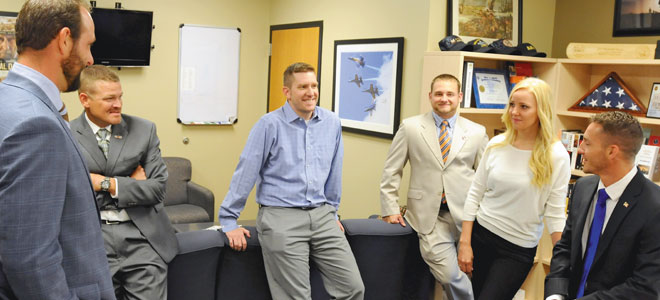
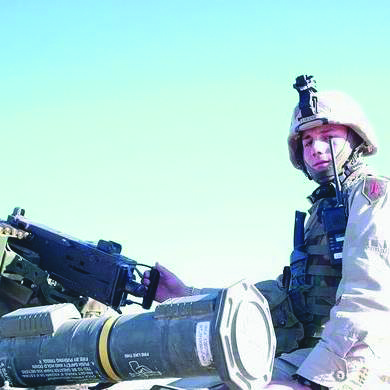
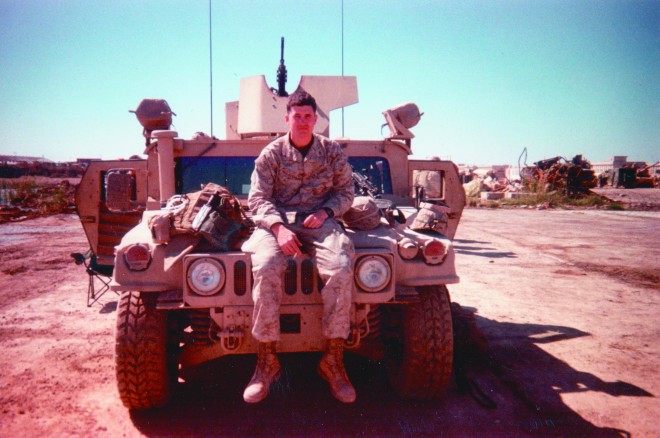
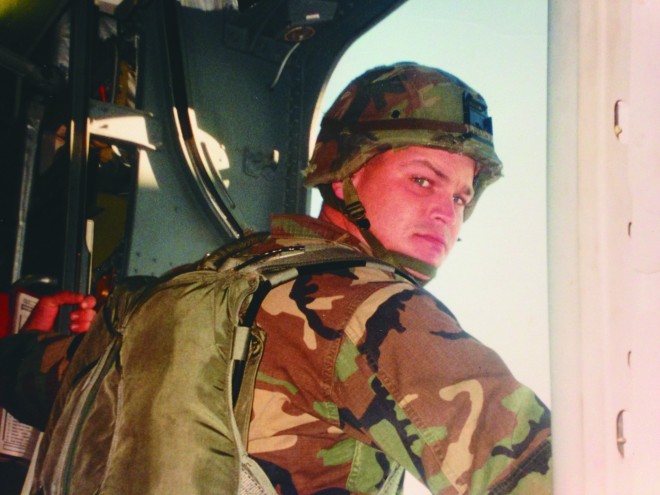
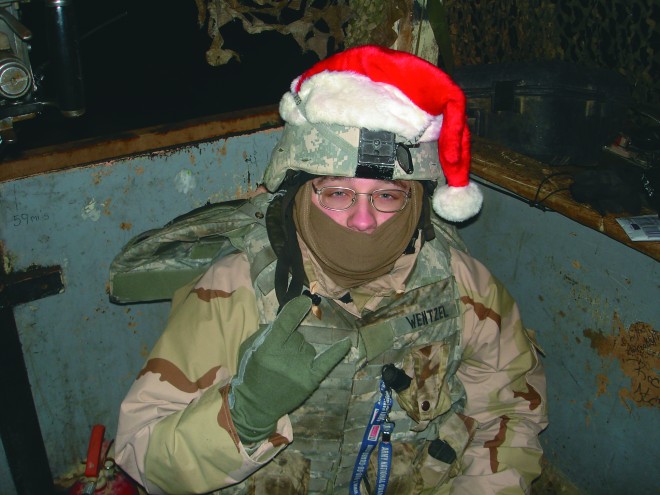
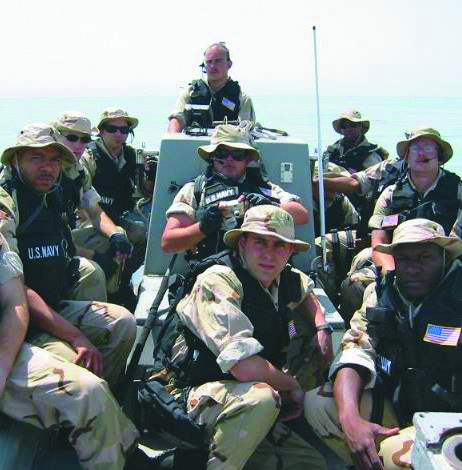
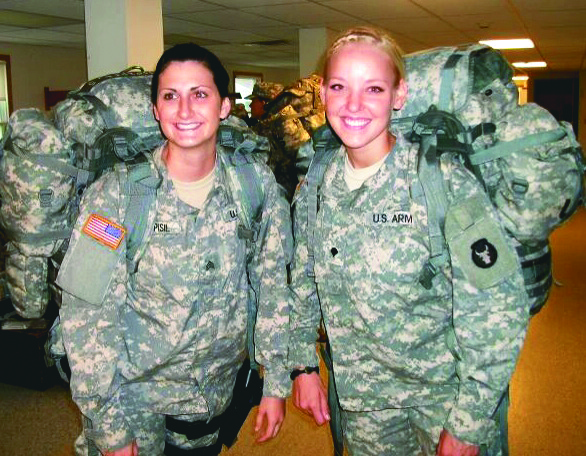
Speak Your Mind